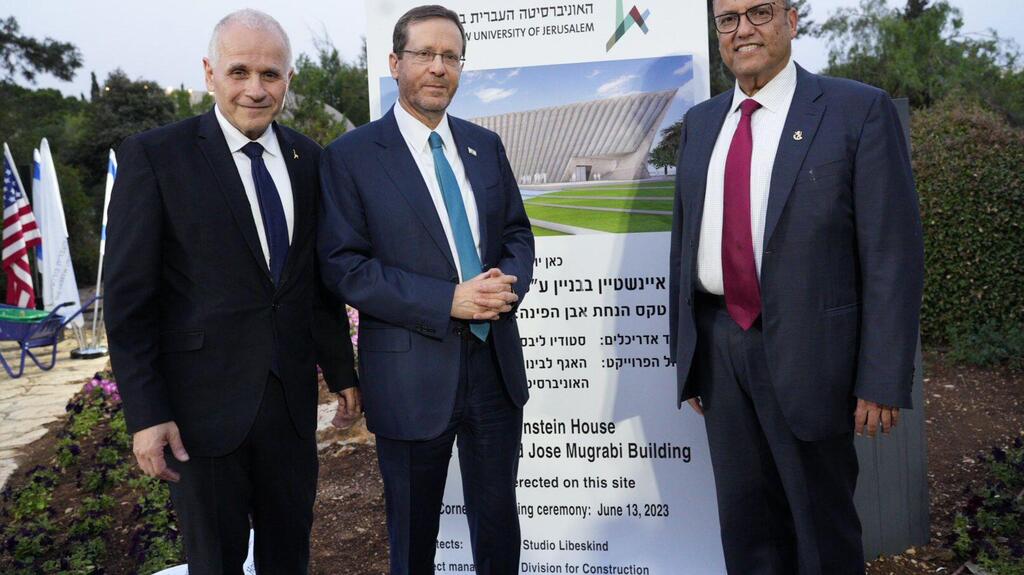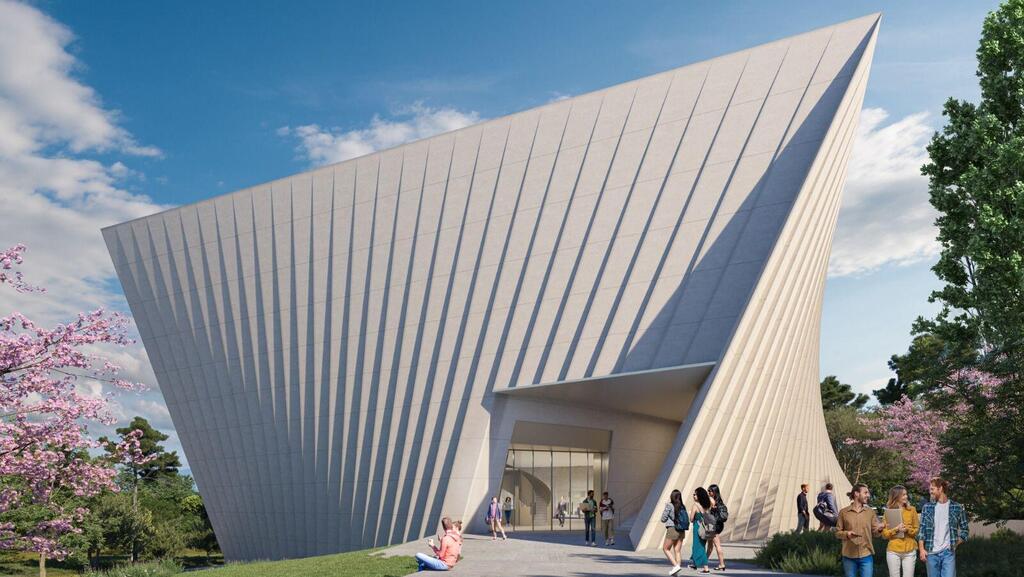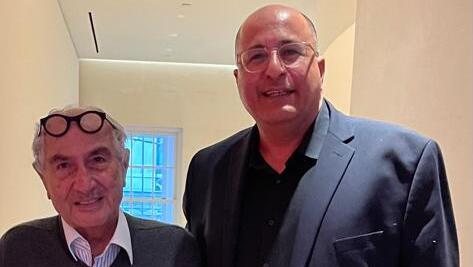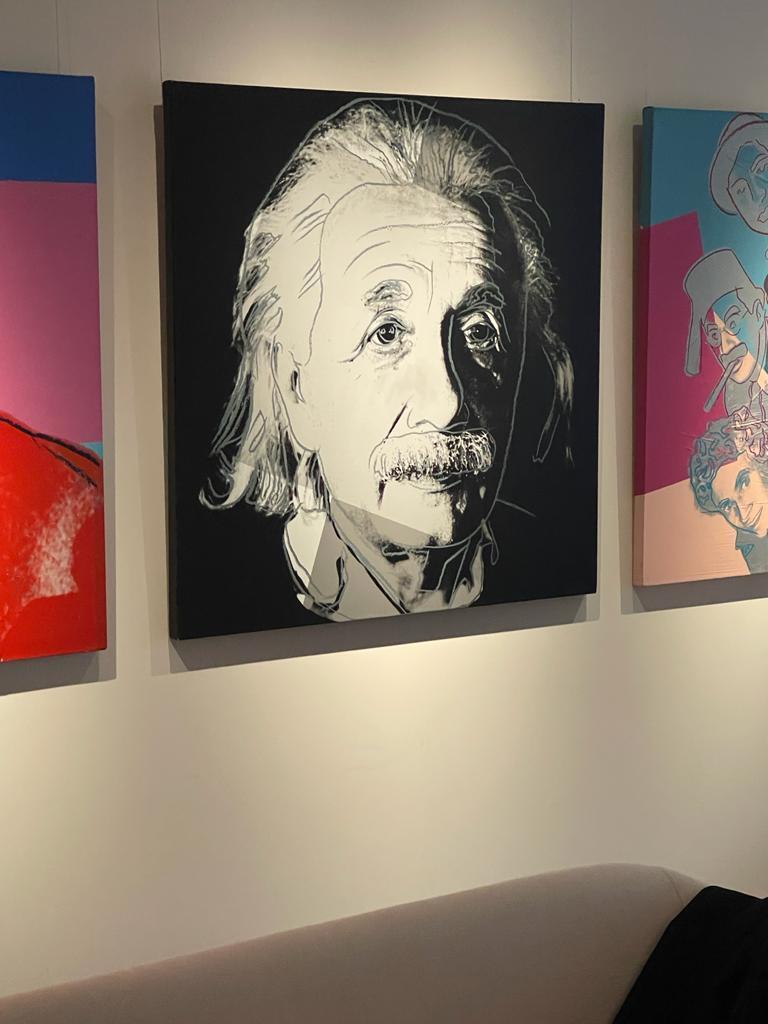Jerusalem will soon have a new museum to house the personal archive of Albert Einstein including his notes on the theory of relativity. Jewish architect Daniel Libeskind, who designed the magnificent Jewish Museum in Berlin, among other well-known buildings, will design the museum.
Read more:
Einstein was among the founders of Hebrew University and served as its first honorary chairman of the board of trustees, answering a call from a fellow scientist and later on Israel's first president - Chaim Weizmann. "I am a Zionist," the Nobel laureate for physics said and bequeathed his personal archive to the university upon his death.
The new structure will span an area of 2,900 square meters (31215.34 square feet) over three floors and will be constructed of light stone. On the first floor, Einstein's archives will be housed with interactive tools for the public to use in order to engage with its content. The second floor will feature exhibitions of the scientist's work, as well as his Jewish and social activism.
The third floor will include an amphitheater and a reconstruction of Einstein's office own office and his private library. Visitors will be able to explore interactive screens in the library and participate in experiential and educational activities. There will also be a spacious terrace overlooking Jerusalem and Hebrew University campus at Givat Ram. The museum will open in 2025.
The Einstein Museum was the brainchild of former diplomat Ido Aharoni who began pitching his idea to Jewish philanthropists when he served as Israel's consul general in New York in 2010 - 2016) He succeeded in enlisting the enthusiasm of Jose Mugrabi, himself a native of Jerusalem who made his fortune in the U.S. and is an avid collector of art. Mugrabi donated over 40 million dollars to the construction of the museum and after the government added just over half as much, the budget was secured and the project could be set on its way.
"Right here, we are laying the foundations for a vibrant and essential archive that will encompass the writings of one of the greatest minds known to humanity," President Issac Herzog said in the laying of the cornerstone for the new museum. "But we are also laying the foundations for a magnificent building designed by architect Daniel Libeskind, whose purpose is to preserve a heritage greater than any individual alone. It is the legacy of human curiosity, 'holy curiosity,' as Einstein himself put it," Herzog said. "In the past 100 years, the Hebrew University has blossomed into a premier international institution at the forefront of global research. I thank the government of Israel and all the partners in this wonderful project, hoping that in just two years' time, we will witness its fulfillment, during the celebration of the university's centennial," he said.
4 View gallery


Cornerstone laying ceremony for the Beit Einstein museum in Jerusalem
(Photo: Maxim Dinshtein)
Prof. Asher Cohen, President of the Hebrew University said the museum will make Einstein's science accessible to the public. "Our mission is first and foremost to practice science and generate breakthroughs that will improve the lives of humanity as a whole. But no less important than this mission is to illustrate and make science accessible to diverse audiences, and that is precisely the vision underlying the Einstein House."
In 2007, as part of his work in a project to improve Israel’s image, Israeli diplomat and former Consul General in New York (2010-2016), Ido Aharoni, developed a plan to build a national archive dedicated to Einstein.
He dedicated himself to promoting the prestigious project among the global Jewish community and senior Israeli officials.
In 2017, his efforts were rewarded when a generous contribution was made to the project by Jose Mugrabi, one of the world’s most prominent art collectors, who pledged 41.5 million shekels to realize the vision. The Israeli government added an additional 22.5 million shekels, for a total of 64 million shekels.
Mugrabi said that, "When Ido Aharoni presented the project to me, it took me some time to grasp its magnitude. After understanding its significance, I felt compelled to contribute the necessary resources to complete it. For me, being associated with Einstein's name is an extraordinary achievement. Out of all the projects I’ve done in my life, this is the most important one."
The museum will be named after Jose and his wife Mary. Aharoni added, "For me, this means the fulfillment to fortify and present Israel’s image internationally. We discovered that people respond better to Israel's story as a creative nation than to any other narrative, as was shown in a survey we conducted.”
“Einstein was a Zionist and the father of Israel's scientific excellence. It seemed only natural to me to seize this opportunity," Aharoni said.
First published: 14:52, 06.15.23





